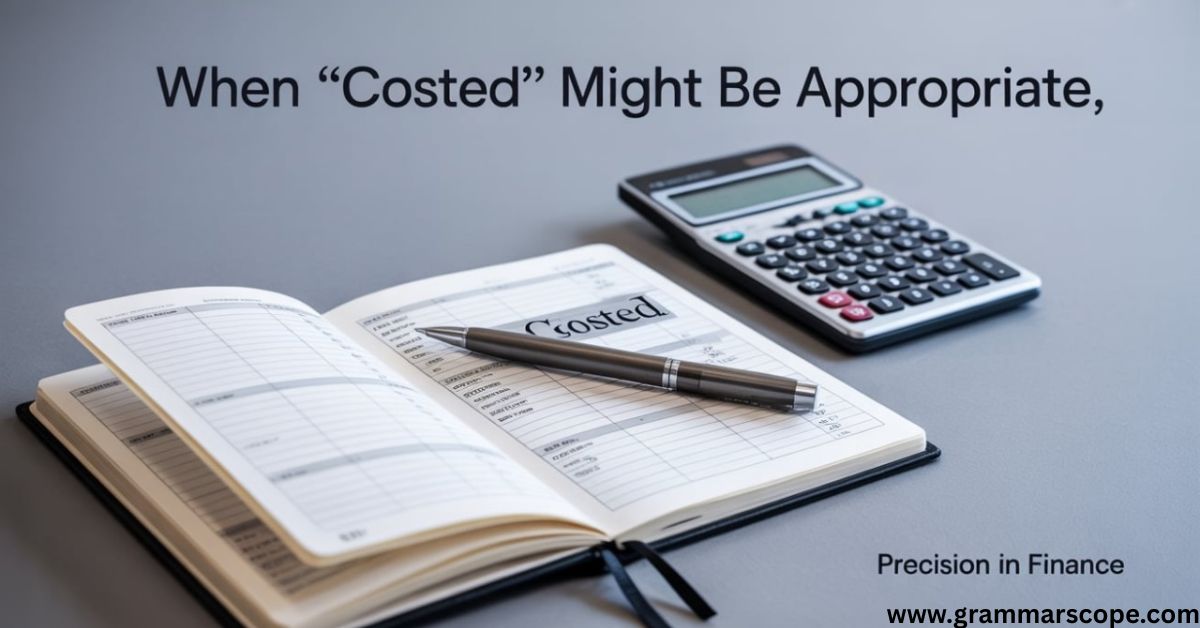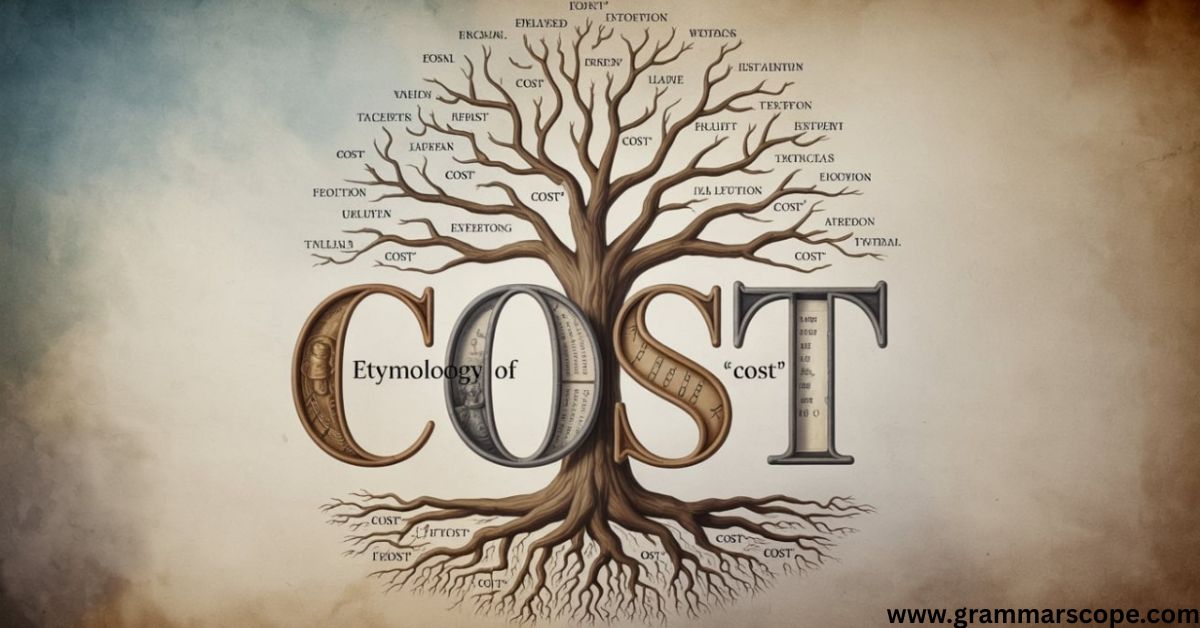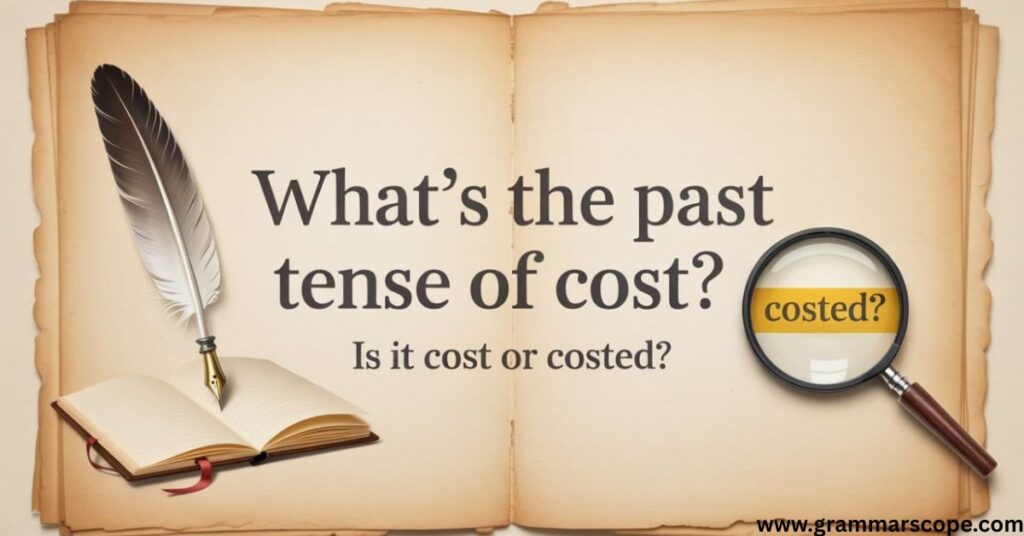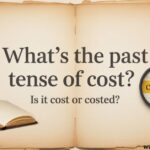The past tense of cost is one of those quirky corners of English grammar that often leaves learners and even native speakers second-guessing themselves. Is it cost or costed? Why do both forms seem to appear in different contexts? If you’ve ever paused mid-sentence while writing an email, unsure of whether to say “The repairs cost $300” or “The repairs cost $300,” you’re not alone and this article is here to clear it all up.
Imagine you’re drafting a project update for your client, Jenny. You want to mention last month’s expenses. Would you write: “The design changes cost $1,500” or “The design changes cost $1,500”? One of them sounds slightly off—but why? Let’s break down the difference between “cost” and “costed” to help you feel more confident and precise in every communication.
In English grammar, certain verbs follow unpredictable patterns. These are known as irregular verbs, and “cost” happens to be one of them. Unlike regular verbs that simply tack on “-ed” to form the past tense, irregular verbs require you to memorize their specific forms. That’s where much of the grammatical confusion around “cost” vs. “costed” begins.
Why Is There Confusion?
The confusion about the past tense of cost stems from the fact that both cost and costed are grammatically correct—but they are not always interchangeable. The trick lies in understanding context and intention. Are you describing a price? Or are you referring to a budgeting process or estimation?
This makes English particularly tricky for learners. Unlike more structured languages, English grammar rules allow for subtle distinctions between word usage in context. One term might be correct in a financial planning term setting, but sound odd in casual conversation.
What Does “Cost” Mean?
At its core, “cost” is a verb that describes the price of something. For instance:
- “The jacket cost me $200.”
It can also function as a noun:
- “The cost of living has increased.”
But today, we’re focusing on the verb forms, especially when expressing them in the simple past tense or past participle.
The Past Tense of “Cost”
In most everyday situations, especially when referencing the price of something, the verb cost past tense is simply cost. It remains the same in the base, past, and past participle of cost forms.
| Verb Form | Example |
|---|---|
| Base | I cost |
| Past | I cost |
| Past Participle | I have cost |
For example:
- “Yesterday, the tickets cost $100 each.”
- “The repair job cost more than expected.”
This usage follows the pattern of irregular verbs.
When “Costed” Might Be Appropriate

Here’s where it gets interesting. The word “costed” is correct, but in very specific, professional settings. It is typically used when referring to estimates, pricing analysis, or planning documents.
For instance, in a cost analysis or estimation context:
- “The project was costed at $500,000 by the engineering team.”
Here, “costed” doesn’t just reflect a past price. It emphasizes a deliberate evaluation or forecasting process.
Referring to Cost Analysis or Estimation
- Email Example: “Hi Michael, the new marketing strategy has been costed and the preliminary budget is attached.”
- Report Excerpt: “All vendor options were thoroughly costed before making a selection.”
This is where costed grammar plays a role in fields like accounting, budgeting, and project management.
Emphasizing a Deliberate Action:
In business writing, you may want to emphasize that a professional process took place, rather than simply reporting a price.
- “Our consultants costed the initiative and found it financially viable.”
This makes “costed” particularly useful in professional jargon.
Verb Tenses for “Cost”
Let’s quickly recap how “cost” functions in different tenses:
| Tense | Example |
|---|---|
| Present | The meal costs $10. |
| Past | The meal cost $10 yesterday. |
| Present Perfect | The meal has cost me a lot over time. |
| Past Perfect | The repairs had cost more than expected. |
| Future | The new phone will cost $999. |
Notice that in almost all cases, cost remains unchanged unless you’re discussing budget estimates.
“Cost” and “Costed” in Sentences
Let’s compare some examples of cost in the past tense with sentences using “costed” correctly.
Examples with “Cost”:
- “The dinner cost me a fortune.”
- “Last quarter, maintenance cost the company over $20,000.”
- Email: “Hi Sarah, the logistics cost us less than anticipated.”
Examples with “Costed”:
- “We costed the proposal before submission.”
- “Each construction phase was carefully costed for accuracy.”
- Email: “Hello Alex, the new feature rollout has been costed and falls within budget.”
Synonyms for “Cost” and “Costed”
Synonyms for “Cost” (General Use):
- Spent
- Charged
- Priced at
- Came to
Synonyms for “Costed” (Specialized Use):
- Estimated
- Budgeted
- Assessed
- Valuated
Using synonyms can improve clarity and avoid repetition, especially when drafting professional reports.
Etymology of “Cost”

The word “cost” comes from the Latin constare, meaning “to stand firm” or “to be fixed.” Over time, it evolved into Old French coste, and eventually into the Middle English “costen,” meaning to require payment.
Understanding the etymology of cost helps explain why it functions as an irregular verb in modern English.
Final Thoughts on the Past Tense of “Cost”
So—cost or costed? The answer depends on context. When referring to the price of something in the past, cost is correct. When discussing budgeting or professional estimations, cost is the appropriate choice.
Here’s a quick guide:
- Talking about actual payment? Use cost.
- Talking about financial projections or assessments? Use costed.
Understanding the difference between cost and costed can sharpen your communication in both casual and professional settings. Whether you’re writing an informal note or a budget report, knowing when to use each form will help you express yourself with confidence and clarity.
Pro Tips (Most Important Paragraph Summary)
✅ Remember: Use cost when referring to what you paid, and costed when referring to what you estimated. If you’re unsure, ask yourself: Was this a price already paid, or a value projected by someone? That question alone will steer you toward the right form.

Emma Olivia is an experienced blogger and the creative mind behind Grammar Scope. With a passion for language and years of writing expertise, she crafts engaging, informative content that simplifies grammar and writing tips for readers worldwide. Emma’s dedication to clear communication and love for the written word shine through every article she publishes, making Grammar Scope a trusted resource for language enthusiasts and learners alike.






